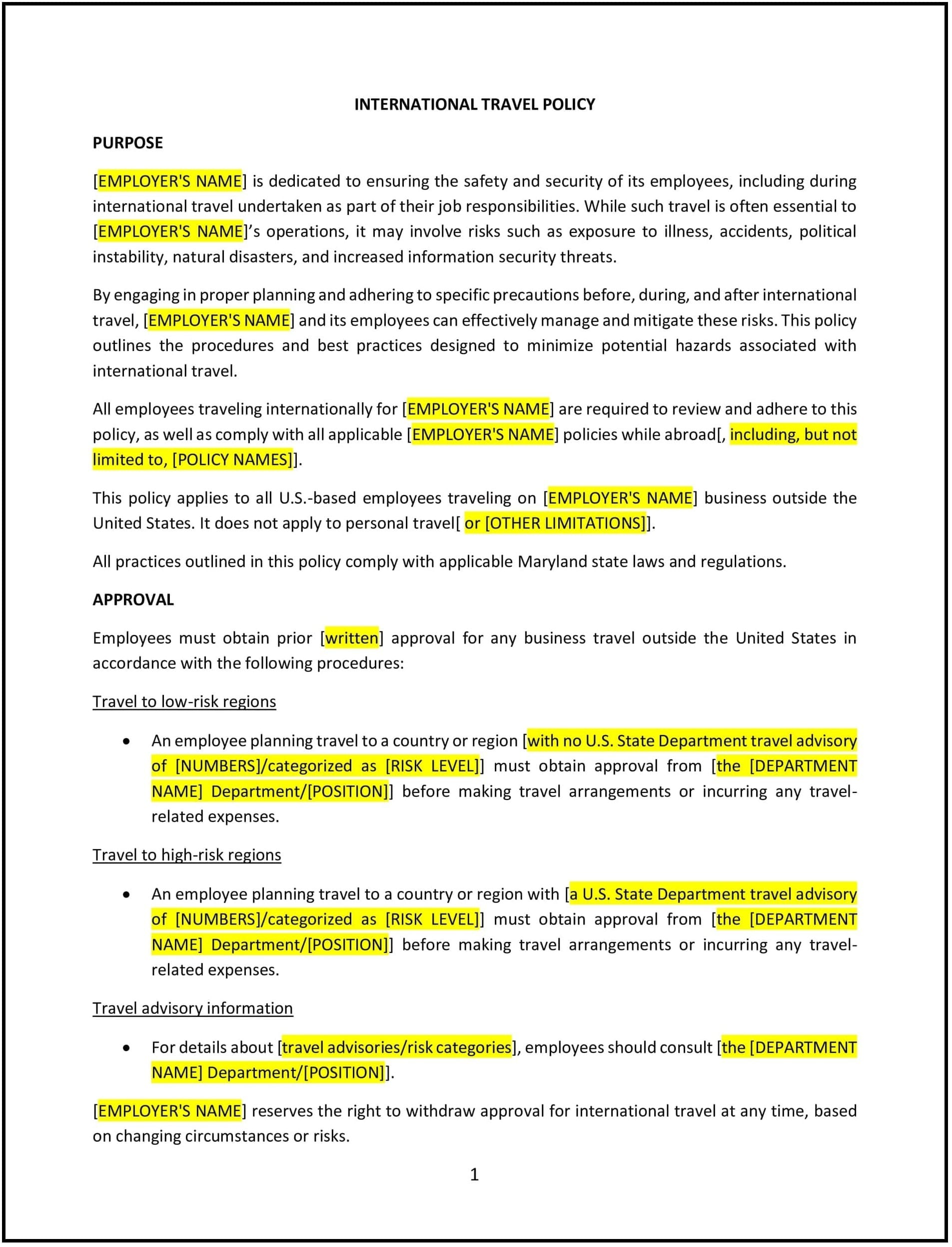International travel policy (Maryland): Free template
Got contracts to review? While you're here for policies, let Cobrief make contract review effortless—start your free review now.

Customize this template for free
International travel policy (Maryland)
This international travel policy is designed to help Maryland businesses manage and support employee travel for business purposes abroad. It outlines procedures for planning, safety, expense management, and compliance with travel regulations, ensuring consistency and efficiency in international travel practices.
By adopting this policy, Maryland businesses can promote safe, cost-effective, and well-coordinated international travel while minimizing risks and disruptions.
How to use this international travel policy (Maryland)
- Define travel purpose: Clearly specify the types of international travel covered by the policy, such as client meetings, conferences, or training events.
- Outline approval procedures: Detail the process for requesting and approving international travel, including required documentation and timelines.
- Set expense guidelines: Provide limits and procedures for reimbursing expenses, such as airfare, lodging, meals, and transportation.
- Emphasize travel safety: Include guidelines for addressing health, security, and emergency situations, such as using travel insurance or registering with the U.S. State Department’s STEP program.
- Address documentation needs: Require employees to obtain and maintain valid passports, visas, and any other necessary travel documents.
- Provide pre-travel resources: Offer information on travel advisories, cultural considerations, and country-specific laws relevant to the trip.
- Reflect Maryland-specific considerations: Align with state laws or resources, such as utilizing Maryland-based travel management firms or partnerships.
Benefits of using this international travel policy (Maryland)
Implementing this policy provides Maryland businesses with several advantages:
- Promotes safety: Reduces risks associated with international travel through planning and preparedness.
- Enhances consistency: Establishes clear procedures for managing travel arrangements and expenses.
- Controls costs: Ensures travel expenditures are aligned with company budgets and guidelines.
- Supports compliance: Addresses legal and regulatory requirements for international business activities.
- Builds trust: Demonstrates a commitment to employee safety and well-being during international trips.
Tips for using this international travel policy (Maryland)
- Communicate expectations: Provide employees with a copy of the policy before they travel and answer any questions.
- Monitor travel advisories: Stay updated on government-issued travel alerts or restrictions for specific destinations.
- Offer emergency contacts: Ensure employees have access to 24/7 support for emergencies, including HR or designated travel coordinators.
- Use travel management tools: Implement software to streamline booking, tracking expenses, and managing itineraries.
- Stay updated: Regularly review and update the policy to reflect changes in international regulations or company needs.